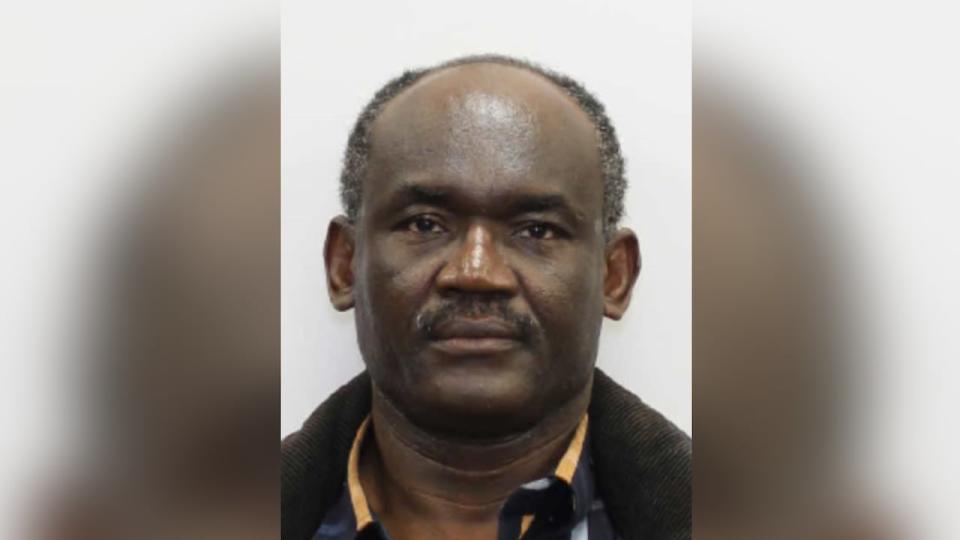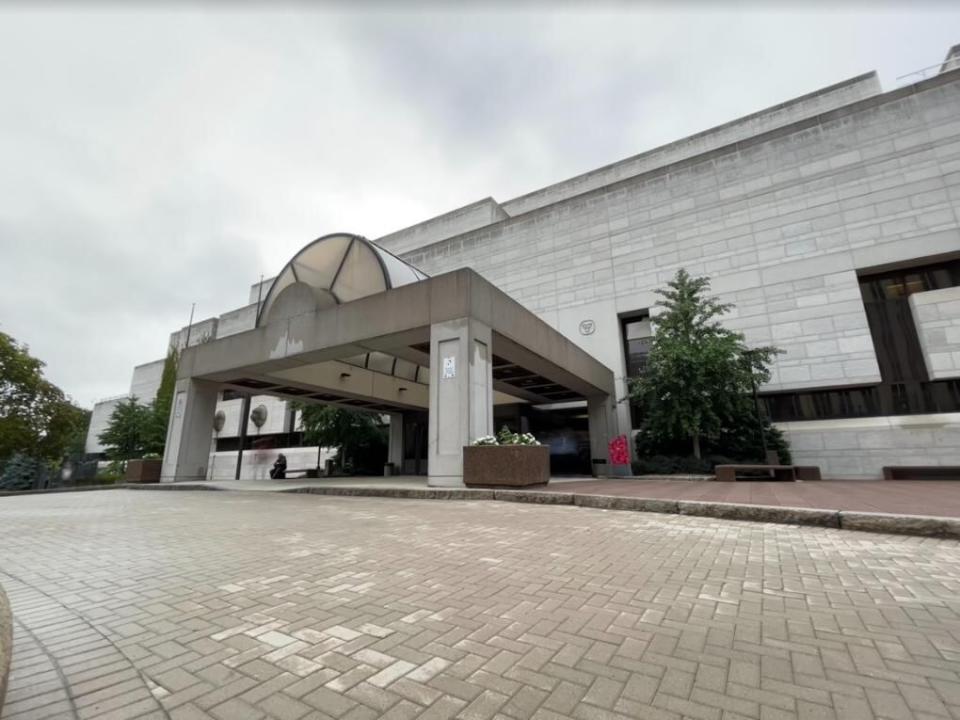


An Ottawa police officer who investigated a report that Hamid Ayoub held a knife to his wife’s neck — eight years before he murdered her and stabbed their daughter — told his murder trial she didn’t charge him because the complainant didn’t want her to — despite the fact that police are obligated to lay charges regardless of what victims want.
Hamid Ayoub, 63, is accused of first-degree murder in the stabbing death of Hanadi Mohamed, 50, and the attempted murder of his daughter, who was then 22 and is now 26, on June 15, 2021.
He pleaded not guilty in Ottawa’s Superior Court at the beginning of his trial on Sept. 16.
The defence concedes that Ayoub murdered Mohamed and stabbed their daughter, but is arguing that the bar for first-degree murder and attempted murder weren’t met. Crown prosecutors Louise Tansey and Cecilia Bouzane rejected Ayoub’s guilty pleas to second-degree murder and aggravated assault.

Hamid Ayoub, now 63, is standing trial on charges of first-degree murder and attempted murder in the 2021 stabbings of his ex, Mohamed, and their 22-year-old daughter. (Ottawa Police Service)
Police called about 2013 incident weeks later
Last week, the jury heard that in 2013, the couple’s daughter saw Ayoub standing behind her mother and holding a knife to her throat after Mohamed screamed to her children for help. It was one in a series of acts of abuse Ayoub inflicted on Mohamed that the children had witnessed.
He said, “I’m going to kill you” in Arabic, the daughter testified. CBC News has agreed not to name her to protect her mental health.
Police were not called right after it happened. The daughter told the jury she thinks that was because an upcoming family trip to Sudan for the summer break hinged on having signatures from both parents.
But when the family flew back from Sudan in September, Mohamed and the children hid from Ayoub at the Ottawa airport and Mohamed contacted police.
No charge laid because victim didn’t want to
Acting Sgt. Erin McMullan, then a detective in the intimate partner violence unit of the Ottawa Police Service, was assigned the case. She testified earlier this week that she interviewed Mohamed with the help of an Arabic interpreter, and found minor inconsistencies between what Mohamed told her and a statement prepared by a different officer who had interviewed Mohamed at the airport three days earlier.
Mohamed also told McMullan that she didn’t want Ayoub to be charged.
“She was incredibly fearful in her statement with me at the end,” McMullan testified under cross-examination by co-defence counsel Omar Abou El Hassan. “She had a whole bunch of different reasons why this would make things a lot worse for her.”
McMullan agreed with Abou El Hassan that police are actually duty bound to lay charges in domestic violence cases if they have reasonable grounds, regardless of whether the complainant wants police to lay charges or not.
“In true honesty, could I have pushed that and laid a charge? I absolutely could have pushed that and laid a charge,” McMullan testified.
“Trust me, I am very, very aware of that decision that I made. But … I chose to give her the power back. I chose to not bring [Ayoub] in because I didn’t want to make the situation worse for her if she felt that she had it under control at that point. And I used that inconsistency in her statement to allow the articulation of me not laying that charge. And I, at the end of the day, have to wear that, as does Miss Mohamed and all of her family.”
Neither the children nor Ayoub were brought in for an interview. When McMullan spoke to Mohamed 10 days later, Mohamed said she was safe, happy and unafraid, the jury heard.
‘You left the house, you took the kids’
Years later, on May 19, 2021, about a month before the stabbings, Mohamed called police after Ayoub approached her in the parking lot of a shopping plaza close to her home. She had left him about nine months earlier.
“We immediately could tell that she was fearful,” Const. Mercedes Nash, one of the responding officers, testified this week.
Mohamed told Nash that Ayoub parked in the shopping plaza’s lot, walked up to her and said hi. Mohamed told Ayoub she didn’t want to talk to him, Nash testified while reviewing her notes from that day.
“He answered, and I quote, ‘You left the house, you took the kids,'” Nash told the jury. Ayoub also told Mohamed he knew where she lived.
“She actually started calling out for help … when he said this to her, trying to get help from other people, because clearly she took this as a threat,” the officer testified. At that point Ayoub headed to his vehicle and drove away.


The trial at the Ottawa Courthouse continues next week. (Matthew Kupfer/CBC)
No charges laid
Nash testified that no charges were laid. There had been no direct threat, assault or repeated contact, and under cross-examination by co-defence counsel Leonardo Russomanno, Nash testified police didn’t have sufficient evidence that Ayoub was watching or following Mohamed.
Mohamed asked how she could get a restraining order, and Nash described the process.
Later that day, police went to Ayoub’s home to get his side of the story, to warn him not to contact Mohamed or go to her home, and to tell him the incident was being documented.
He welcomed officers inside his home, which contained many professional-grade paintings, and told them he had gone to the plaza to pick up hangers for paintings he had sold, Nash testified. He denied telling Mohamed that he knew where she lived, and said he had asked her if the family would all be going to Sudan together to discuss their separation and potential divorce.
Ayoub told the officers Mohamed had persuaded their children not to live with him, and suggested she was pitting the children against him. He said he was afraid of Mohamed, but didn’t respond when police asked if she was threatening or assaultive, Nash testified.
Ayoub’s trial continues next week.